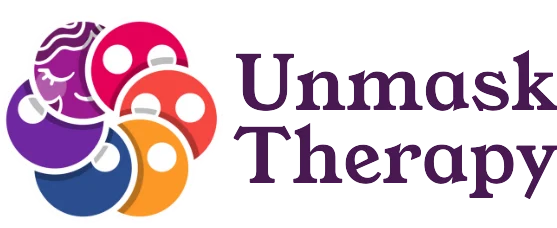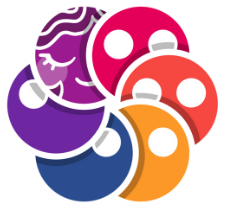For many people, especially those receiving a late ADHD or autism diagnosis, the answer sits in the mix of relief and loss that arrives together. A diagnosis can explain years of confusion and self-doubt, while also opening grief for the support, understanding, and self-compassion that didn’t come earlier.
This kind of grief is real, even when the diagnosis is welcome.
Receiving a diagnosis (or finding a label that fits you) can be a joyful and empowering experience. Still, it can also be upsetting, confusing, and leave you thinking about how your life could have been different.
“Late Diagnosis” and Grief
“Disenfranchised grief” is when we’re grieving over something that other people don’t acknowledge as important. One of the most common forms of this is mourning “the life I could have had, if things had been different”. It can be hard to explain why you’re sad about something that never happened, or why the idea hurts so much. When you get an adult diagnosis, you might start looking at your struggles in a new light. ADHD is tied to difficulties focusing, planning, and being consistent (among other things), and it can be devastating that your failures weren’t because you were lazy or careless or “didn’t try hard enough” but because there were psychological barriers that required support and treatment.
We can’t know for sure what our lives would look like if one small thing were different, let alone if our entire school career had involved therapy, medication, or accommodations. We can start to question who we could have been and feel deep grief and sadness over these possibilities. I’ve described this as having an “early mid-life crisis”, since this uncertainty and regret about the past is “supposed” to hit at middle age.
When a Diagnosis Changes How You See Your Whole Life
A diagnosis doesn’t just explain the present. It often reaches back and reshapes the past.
People frequently tell me that after a late diagnosis, memories start replaying with new meaning. School reports. Friendships that fell apart. Jobs that never quite worked out. Moments once labelled as “failure” or “laziness” begin to look more like unmet needs.
That shift can feel grounding — and deeply unsettling at the same time.
Grief often appears here because you’re not just learning something new. You’re letting go of an old story about who you were supposed to be, and why things felt so hard for so long.
“How Did This Get Missed For So Long?”
Another aspect of grief for many people is the grief for the child they used to be, who didn’t get the support they deserved. As loving, empathetic individuals, we can see our child-selves with more kindness than we do our current selves, and wish that little kid had been treated better by peers, teachers, or family members. Knowing that we taught ourselves to mask our emotions and needs, or were punished for things we now know are outside our control, can be devastating.
The System Didn’t See You — And That Can Hurt
For many Australians, late diagnosis isn’t an accident. It’s the result of systems that weren’t built to recognise neurodivergence in all its forms.
ADHD and autism have long been under-recognised in:
- Girls and women
- Queer and trans people
- People who masked well
- People who coped quietly, at a cost
When someone realizes that their struggles were missed because the system wasn’t listening, grief can turn into anger, sadness, or both. That reaction makes sense. It’s not about blaming parents or teachers — it’s about acknowledging that you carried more than you should have had to.
Stages of Grief: An Anecdote
Most of us are familiar with the “Kubler-Ross Model” of grief through pop culture. Denial -> Anger -> Fear -> Bargaining -> Acceptance. Pop culture often omits to tell us that these “stages” rarely occur in order or one at a time. I recently joked that when I was diagnosed, the first stage of grief I experienced was Acceptance, so it took me a while to notice the others. I was so happy and relieved to be getting support that everything seemed wonderful. It wasn’t until months later that I started to feel Angry. I was angry at my parents and previous therapists for not noticing what was now so obvious to me, and angry at the mental health system, which makes it so difficult and expensive to get the right support.
Then I jumped to Denial: I refused to view ADHD as a disability and only focused on the positives—our creativity and strength in a crisis, our adaptability and empathy. Not bad in theory, but I was refusing to acknowledge the ways I struggled in my daily life, and how the world’s structure didn’t always fit my brain. When I was able to acknowledge these things… There was Fear. I was terrified that medication wouldn’t help, or would help for a while, then stop working, and my life would start to fall apart. This turned into bargaining; buying every ADHD book available, listening to every podcast, watching every “life hack” video so that if something bad happened, I’d have all the tools to prevent disaster (not that learning more is a bad strategy, mind you).
These days, I feel all of these emotions in bits and pieces. This isn’t the kind of grief that has a straightforward beginning or end, but I can acknowledge that my relationship with ADHD is complicated, as are my feelings. I like this person I’ve become, even if I could have been someone else, but I also make room for the hard emotions because it’s hard sometimes, and we can’t hide from that.
Diagnosis Grief Doesn’t Follow a Neat Timeline
Grief after diagnosis rarely moves in a straight line.
One day you might feel calm, even relieved. The next, something small — a comment, a memory, a task that still feels hard — can bring the sadness right back. Many people worry this means they’re “doing it wrong.”
They’re not.
Grief connected to identity tends to come in waves. It shows up when you’re tired, when you try something new, or when you notice how much energy you spent just trying to keep up. This doesn’t mean you’re stuck. It means you’re human.
Why Diagnosis Grief Is So Common in Adults
Adults who receive a diagnosis later in life often carry years of self-criticism. By the time answers arrive, they’ve already worked hard to survive without support.
That history matters.
Grief can surface because:
- You had to push through without understanding why things felt harder
- You learned to doubt yourself instead of asking for help
- You adapted by masking, overworking, or shrinking yourself
A diagnosis doesn’t erase that past. It explains it — and that explanation can hurt before it heals.
Finding Hope for the Future
This has been a bit of a downer post, huh? I didn’t want to sugarcoat it. Especially not when the main characterising feature of disenfranchised grief is that it doesn’t get acknowledged. So let’s acknowledge sadness while knowing that we do it to make room for the joy. And there absolutely is joy to be found.
There are lots of perspectives on ADHD, and you’ll find people who describe it as a blessing or a curse, an illness or an evolutionary advantage. There’s no one right way to feel, and most of us will feel a bit of both, and a million other things too (usually at the same time).
For many people, a diagnosis is a relief. Finally, having a language to explain experiences and feelings that have been locked away for decades. It can bring a sense of community and closeness to find others who think and feel and struggle with the same things without shame (Thanks, ADHD Memes on Facebook). It can also open up new doors, because with knowledge comes strategies – and medication for some – that can make old dreams feel possible again. Hopeless, distractible, lazy Felix couldn’t have survived a master’s degree.
ADHD Felix knows which parts of study are harder for them, and that they need more breaks, more kindness, and sometimes more support than other people, and that’s okay. My diagnosis permitted me to treat myself with empathy, and to do what works for me, instead of twisting myself into a pretzel trying to do things the ‘normal’ way.
What Can Help When Diagnosis Grief Shows Up
There’s no single right response to diagnosis grief, but a few things often help people move through it with more gentleness:
- Name the grief
Saying “this feels like loss” can be relieving in itself. - Talk with people who get it
Shared experience reduces isolation. You don’t have to explain every detail. - Work with a therapist who understands neurodivergence
Support that sees both the diagnosis and the person matters. - Give yourself time
Grief doesn’t need fixing. It needs space.
None of this means staying stuck. It means allowing the feelings to move instead of fighting them.
Next Steps
Wrapping up the rollercoaster of ADHD discovery and grief, it can be a real time for people. Delving into mourning the could-have-beens and grappling with a delayed ADHD diagnosis can be painful, and you deserve to feel that pain without shame. Disenfranchised grief needs its moment. Let’s give sadness its due, but don’t forget there’s joy in the mix too.
Finding your tribe and having a lightbulb moment about your quirks, your strengths, your glorious weirdness… It’s all part of the messy, beautiful journey. And with knowledge comes power – the power to embrace your unique self, develop strategies, and maybe even revisit old dreams.
So if any of this is sounding familiar, or you can see it coming closer as you tentatively explore your own diagnosis experiences, you don’t have to do it alone. It’s not just you. Get in touch to talk about this further, or just to get a pointer on where to go next. It’s all about your direction and your choices.
Common FAQs
Is it normal to grieve after an ADHD or autism diagnosis?
Yes. Many people feel grief alongside relief. Both reactions can exist at the same time.
How long does diagnosis grief last?
There’s no set timeline. Some feelings pass quickly, others return in waves. That doesn’t mean something is wrong.
Why do I feel sad after finally getting answers?
Because answers also highlight what was missing before — support, understanding, and kindness toward yourself.


